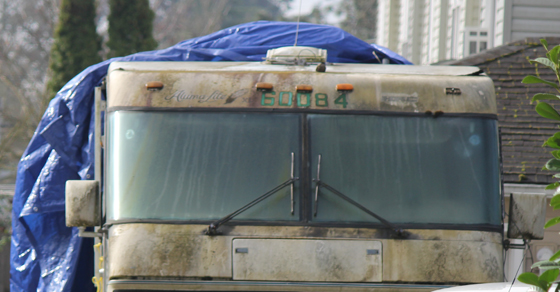 I just returned from a week in Helena, Montana.
I just returned from a week in Helena, Montana.
It was utopic: silent mornings, sitting alone on a wide deck overlooking Hauser Lake; loud middays, talking and laughing with family under the big Montana sky; and brilliant evenings, watching the horizon erupt in a blaze of colors as the sun dropped below the western mountains.
The scenery was fresh and spacious. The air was tranquil and clean. And most important, I was out of the city.
The whole time I was there, I fought back dread of the day when I would have to return to the city where I live – Portland, Oregon.
But before that day came, something worse happened. Shortly after the Fourth of July, the country exploded with violence, protests, and domestic terrorism. Two videos went viral, showing police officers shooting African-American men in St. Paul and Baton Rouge; then five officers were gunned down in Dallas. The nation cracked in two, and the schism spread wide. I knew—absolutely knew—the next several days would be filled with raging debates and groundless conclusions made from hundreds or thousands of miles away, based on a few seconds of unclear video.
It was like wading through sewage. Before anyone knew the facts, hashtag activism erupted from those who weren’t even there. People spewed half-baked answers which they were sure would usher in a national utopia. Even Christians rushed to “out-compassion” one another with simplistic solutions, subtly accusing other believers who disagreed with them of being uncaring.
My Montana escape suddenly seemed so distant. Instead of being grateful for all of the blessings God has given me, I grieved over the tension and strife. I wished I could stay in Montana and never return to the city. But duties called, so I returned.
 Then, more shocking events: On Bastille Day, a truck-driving terrorist in Nice, France, mowed down scores of people, injuring hundreds and killing over 80; and a college student was shot dead in the streets of Helena, Montana. The Nice attack was stunning in its unspeakable scope and depravity; the world reeled from the shock. But for me, the Helena attack was even more personal. Helena was my utopia, my retreat. And just like that, my little self-made haven crumbled into dust. I realized that even there, evil is present. Even there, tears flow and hearts cry out to God. Even there, despite my best attempts to get away from it all, none of us can escape a broken, sinful world.
Then, more shocking events: On Bastille Day, a truck-driving terrorist in Nice, France, mowed down scores of people, injuring hundreds and killing over 80; and a college student was shot dead in the streets of Helena, Montana. The Nice attack was stunning in its unspeakable scope and depravity; the world reeled from the shock. But for me, the Helena attack was even more personal. Helena was my utopia, my retreat. And just like that, my little self-made haven crumbled into dust. I realized that even there, evil is present. Even there, tears flow and hearts cry out to God. Even there, despite my best attempts to get away from it all, none of us can escape a broken, sinful world.
In fact, as I write this (Sunday, July 17), even more tragedy has erupted in Baton Rouge, leaving several police officers dead.
So why do we all try so hard to find utopia? Some fight to create it politically, by working to pass laws and elect leaders they believe in. Others, like me, seek it by physically fleeing to some place we hope will be better (we all know that tired old threat, “If so-and-so is elected, I’m moving to ____!”).
But for Christ-followers, utopia is not the goal.
Jesus is.
Following Christ isn’t about “what’s in it for me” – it’s about being in an intimate relationship with Truth. And it seems that the closer we get to him, the easier it is to step into the brokenness with those who suffer.
During all of the violence and chaos, I did see something good this week. It was a video, apparently filmed the day after the shooting in Dallas, of people stepping up and hugging police officers. As one hugger turned to walk away, the camera caught his t-shirt message: “God must matter.”
The brokenness of remote Montana is no different than the brokenness of inner-city Portland. If Jesus matters in Montana, then he matters in Portland. And if I cannot be a Christ-follower here in my city, then I cannot be one anywhere.
If God does not matter—regardless of where we are—then all we are doing is fighting for a utopia that will never come, or trying to flee to a utopia that doesn’t exist.
Leave a Comment








 Another neighbor has started up an auto repair shop in his home garage. And business must be really good because both sides of the street are packed with broken-down vehicles in need of a mechanic. Since my street has no sidewalk, all of the parked cars leave no place to walk except in the street itself.
Another neighbor has started up an auto repair shop in his home garage. And business must be really good because both sides of the street are packed with broken-down vehicles in need of a mechanic. Since my street has no sidewalk, all of the parked cars leave no place to walk except in the street itself.
